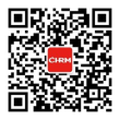Attributed to Stephen Koss, EY Asia-Pacific Workforce Advisory Leader
As countries in the Asia-Pacific region maintain strict measures to contain second or third waves of COVID-19 infections, organizations are continuing to toggle between or accommodate a mix of on-site and remote work arrangements – otherwise known as hybrid work.
As employees spend time in hybrid work environments, their ability to be optimally productive is front of mind for many business leaders. But are they approaching this notion of productivity in the correct way?
When adapting to the restrictions imposed by various governments, keeping employee productivity up seems to be a logical concern. However, leaders should be looking at how the concept of human productivity has evolved beyond the preconceived idea that people are expected to work ‘automatically’ like machines to achieve more output.
As we step into a new, technology-driven age, business leaders need to understand the changes that have occurred and ‘productivity’ is not as it once was.
Changes in workplace dynamics and technology
Due to the pandemic, we have come to better understand that work does not need to be done in a physical office. Through creativity and tenacity, we have adapted to the current working arrangements fairly well. In fact, 71 percent of employees are confident that they can easily attune themselves to their new workflows and pick up skills where needed.
The current situation has also placed technology’s role in the spotlight. When volumes at call centers skyrocketed and humans were unavailable, chatbots bore the brunt of the work. When government stay-home remits were implemented, it compelled the majority of the regional workforce to work from home and artificial intelligence (AI) aided with the groundwork for that to happen. In short, technology enables us to connect virtually and deal with surges in customer demands that can be humanly impossible to handle.
Most of us can therefore agree that productivity can be facilitated by digital tools, but high-performing human teams are built on flexibility and teamwork. Even so, human resources (HR) often overestimate the availability of needed features and tools, their ease of use and the limits that they have.
Focus on empowering human value creation
The EY MillionYou study revealed that 78 percent of employers are looking to change their strategy for remote work to enable employees to be more productive at home. In the same study, 71 percent of employees think that they have been as productive, or even more productive as a result of working from home.
As a result, business leaders should look to empower human value creation, rather than focus their efforts on driving human ‘productivity’. Productivity should instead be shouldered by technology. To do so involves recognizing that employees create the most value when they use uniquely human traits, such as teamwork, judgement, creativity and experience to experiment and innovate.
Bearing that in mind, we cannot simply measure the impact from these traits by using metrics modelled after an input-output notion of machine productivity.
Outstanding ideas rarely emerge from more time being spent in meetings and at the desk. Rather, these ‘eureka’ moments typically emerge from the combination of teamwork and the sharing of diverse perspectives, which is facilitated by technology these days. The stroke of brilliance occurs very differently for every individual, which may be catalyzed by distinctive inputs.
While employees understand this, HR and employees are often misaligned on the importance of nurturing and retaining a positive culture that encourages opinions to be heard.
Adopting a forward-looking mindset
As witnessed by the re-emergence of second COVID-19 infection waves in Australia and Japan, businesses will have to adapt and evolve their workforces’ capabilities. The first step is automation in response to ever-changing customer demands. Secondly, business leaders need to rethink how performance is being measured, rewarded and driven.
Imagine using traditional metrics, such as logging in more meetings, calls and client files completed – these often give us a wrong idea of what value creation truly is. Without considering if the client was happy with the call or how insightful the meeting was, these measures are often not representative of what value an individual can create.
COVID-19 has catapulted us into the future by two to three years. Those who are using interim solutions and longing for work to return to ‘normal’ will eventually find themselves going backwards. Leaders that truly value growth for the future will find solutions to combine human value creation with the productivity of machines.
Planning for a hybrid workforce requires a new approach
For leaders who aspire to empower human value creation, they should consider what uniquely human factors will contribute to the improvement of their product, service, or customer experience. They should also consider revamping rules that will allow employees to decide where and how work should be done. Leaders need to continually think of ways to help people perform to their potential and progress in their career. This can come in many forms; through training, or by simply giving employees the freedom of choice on where they prefer to work.
Other factors to take into consideration are:
· How leaders can be encouraged to adopt a growth mindset while being a good listener, staying curious and ask better questions· How leaders can entice and retain talent beyond COVID-19, regardless of how employees choose to work
· How employee engagement can be sustained in a hybrid environment
· How human value is being created, recognized and duly rewarded
Autonomy, purposeful work, teamwork, well-being and inclusiveness will thus be key organizational enablers of high-performance human work.
As for companies aiming to drive long-term value, employee experience (EX) is the main factor that affects productivity – employees with higher levels of satisfaction tend to be more diligent, stay longer and recommend the company. Customers benefit from improved EX too, as 76 percent of employees think that good EX has improved their ability to provide a good customer experience.
Empowering human value production for the future
Redesigning work to allow employees to perform to their potential will allow business leaders to break free from the age-old but subconscious thinking of ‘humans as machines’. Both organizational and national productivity can improve when we combine human creativity with the productivity of machines to spur growth and potential.
The views reflected in this article are the views of the author and do not necessarily reflect the views of the global EY organization or its member firms.
 手机版|
手机版|

 二维码|
二维码|







